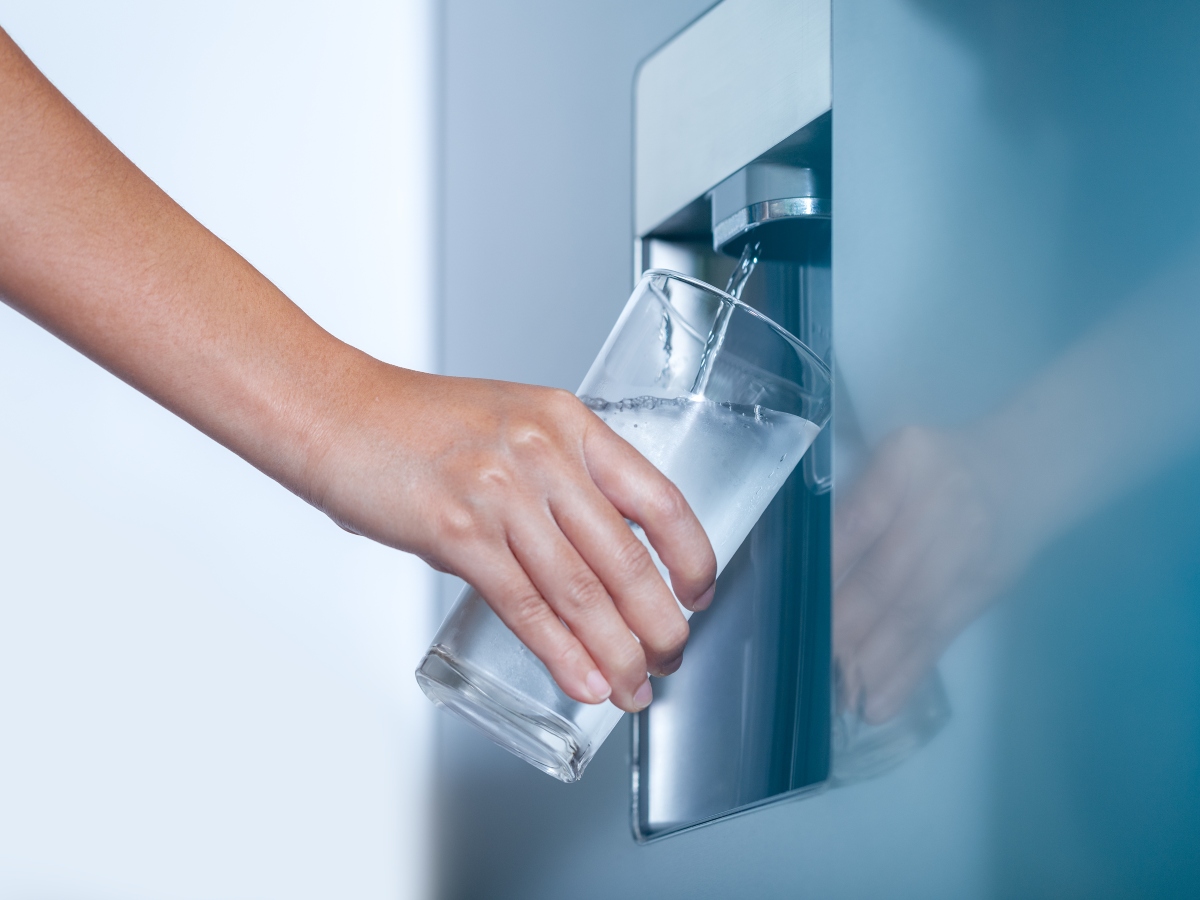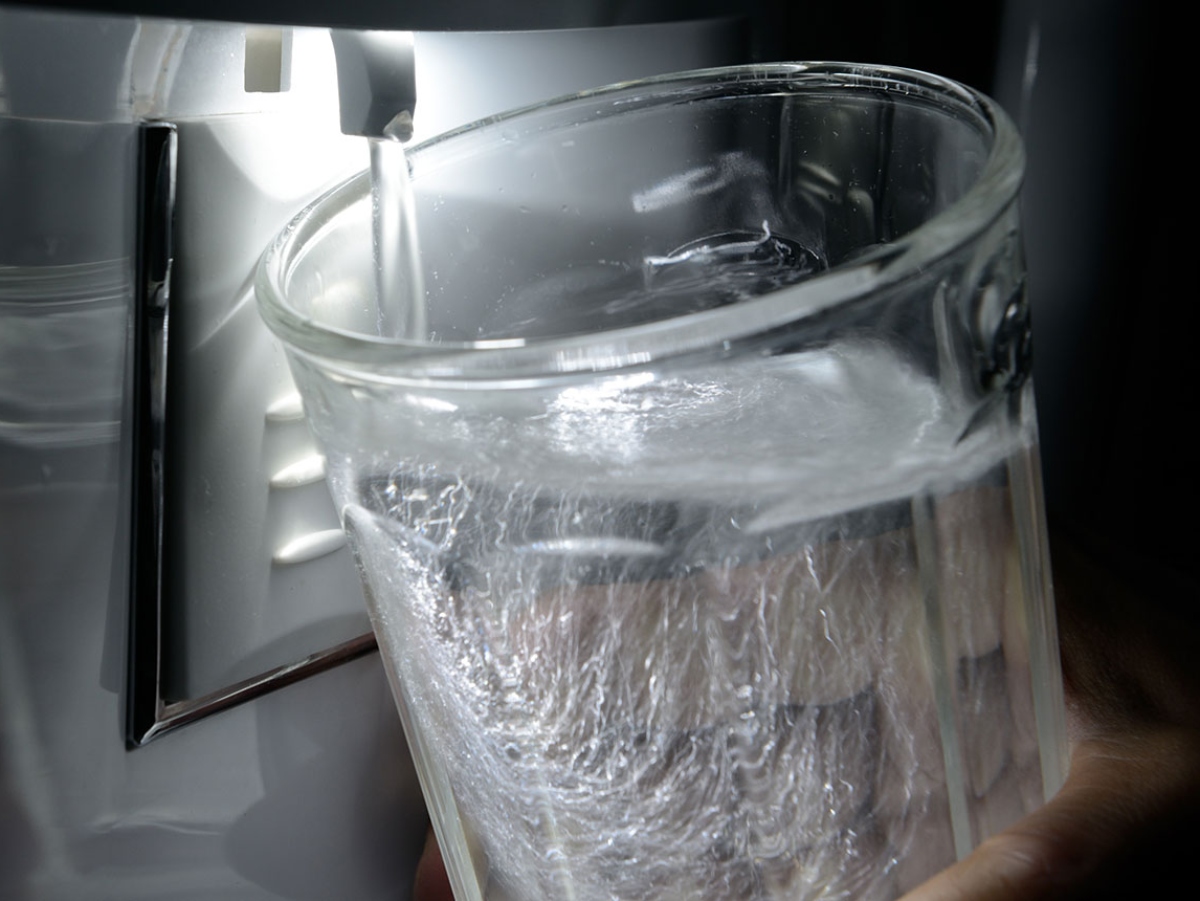Clean and safe drinking water is among the most crucial elements for our well-being. And it’s, for this reason, fridge filters have become so popular recently. While fridge filters are a convenient way to remove impurities from your drinking water, they can become clogged. You must change the filter regularly to avoid clogging and ensure it works efficiently. If you’re wondering how often to change the fridge water filter, this article is for you.
Changing your filter every six months or according to the manufacturer’s instructions is recommended. Household size and the volume of water being filtered are two factors that could influence when the filter has to be changed.
In this article, we look at:
- How often to change fridge water filter
- When to change the fridge water filter
- Factors that can affect the lifespan of the filter
- Reasons to change your fridge filter every six months
Understanding Fridge Water Filters
A refrigerator water filter, commonly known as a “fridge filter,” removes impurities from your fridge’s water supply. Most fridge filters come with activated carbon media, which uses adsorption to remove/reduce contaminants.Typically, fridge filters have ANSI/NSF 42 certification, meaning they’re designed to reduce chlorine, smell, and bad taste and odors. These filters can also reduce volatile organic chemicals (VOCs) and heavy metals such as lead.
Refrigerator filters cannot effectively reduce some contaminants to safe levels, such as arsenic, microorganisms, nitrates, fluoride, and water hardness. It’s good to note some fridge filters have multi certifications, meaning on top of NSF 42, they’re also NSF 401 and NSF 53 certified.
How Often to Change the Fridge Water Filter
Typically, change your refrigerator water filter every six months for households with average water usage. Factors such as household size, water quality, and water usage highly contribute to how often to change fridge water filter.
Why You Should Change Your Fridge Water Filter
You might wonder why your manufacturer recommends changing your filter regularly. Here are some of the reasons:
- It improves water quality: Nothing beats the refreshing feel of good-tasting water. However, clogged filters can remove that pleasant flavor, make the water taste or smell bad, or change its color.
- Reduces the risk of illness: Clogged or expired water filters do not filter contaminants effectively, exposing you to disease-causing pollutants. Changing your filter reduces the risk of disease.
- Maintains the performance of your fridge: An expired filter can affect the performance of your fridge as it can cause the water dispenser flow rate to reduce. It can also cause the ice maker to produce small or less ice. Replacing your fridge filter helps maintain the performance of your fridge.
- Saves money: Changing your filter as recommended can prevent costly repairs from clogged or malfunctioning filters. Furthermore, replacing your fridge filter can help extend the life of your fridge’s water dispenser and ice maker.

What Happens if You Don’t Change the Fridge Water Filter?
If you fail to replace your water filter in due time, it can clog, reducing its ability to remove impurities. This can lead to several issues, including:
- Decreased water flow: A clogged filter cannot pass water at a normal flow rate, meaning it will take longer to fill a glass.
- Poor taste and odor: The filter cannot effectively remove impurities from the water due to the buildup of contaminants on the filtering media. This can result in bad-tasting, colored, or foul-smelling water.
- Thin or hollow ice cubes: Impurity buildup on the filter will reduce water flow to the ice maker, resulting in small or hollow ice cubes. Slow water flow can also lead to little to no ice production.
- Damage to the fridge: A clogged filter can put additional strain on the fridge’s water system, which can eventually cause damage to the unit.
- Potential health risks: When a filter’s media fills with impurities, they can leach into your drinking water. It may also become a breeding ground for bacteria, harming your health.
Signs It’s Time to Change Your Water Filter
If you’re wondering how often to change fridge water filter, you might also question when the right time is to replace the water filter in your refrigerator. Here are signs to look out for:
- Reduced water pressure and ice
- Bad-tasting water or ice
- Cloudy water or ice
- Black specks in your water or ice
- Small or hollow ice cubes
- The replacement light turns on.
- If it’s been six months since the last replacement.
Factors That Can Affect Your Fridge Water Filter’s Lifespan
Generally, manufacturers recommend you replace your fridge’s water filter every six months. However, the following factors might also affect the lifespan of your water filter.
Water Quality
Your water quality can affect the lifespan of a fridge filter, meaning the more contaminants or, the higher the concentration, the quicker it wears out. For example, water with more sediments will block a refrigerator filter more quickly than water with fewer sediments. In addition, if you’re on well water or your water is hard, your fridge filter might need to be changed more often.
Filter Size
Fridge filters come in different sizes to fit specific refrigerator models. A larger filter may have a longer lifespan than a smaller one since it can trap more contaminants before becoming clogged.
Frequency of Use
The more you use your fridge’s water filter dispenser or ice maker, the faster it becomes clogged.
Type of Filter Media
The durability of a water filter can depend on the type of media used. Some media can last longer than others.
Household Size
The more people in your household, the more filtered water they consume, meaning the filter will work harder. This can cause the filter to become clogged and less effective at removing contaminants faster than one in a smaller household.

How Do You Know the Right Replacement Water Filter for My Refrigerator?
Knowing the right replacement for your fridge filter is crucial, especially if it’s the first time you’re replacing it.
- Check the old water filter: The quickest way is to confirm if you still have it from your old water filter. The number part can help you find a suitable replacement. However, you can use the other options discussed below if you don’t have the older filter.
- Check the manual: Your refrigerator’s manual should have information on the type of water filter you need and how to replace it.
- Refrigerator model: As fridge filters vary by model, using the model number will help you choose the correct filter.
- Contact the manufacturer: You can contact your refrigerator’s manufacturer to help you find the right replacement.
What Contaminants Can Fridge Filters Remove?
A refrigerator water filter is typically designed to remove chlorine, VOC, bad taste, and odor. Other contaminants that it can reduce include:
- Mercury
- Chloramines
- Lead (If certified)
- Pesticides
Refrigerator water filters can effectively remove specific contaminants from your drinking water. The effectiveness of fridge filters depends on the type and concentration of contaminants in your water. Most fridge filters use activated carbon, effectively removing chlorine, sediment, and VOCs.
How Long Do You Run Water After Changing a Fridge Filter?
Manufacturers recommended running water through the system for about 3–5 minutes. This will help to flush out any air or carbon particles that may be present in the new filter. However, the exact time depends on your refrigerator’s model, so checking the manufacturer’s instructions is a good idea.
How Do You Know If Your Fridge Water Filter Is Working After Replacement?
There are different ways to check if your refrigerator’s water filter effectively filters contaminants. Your filter may not function well if signs are still present before replacement, such as a low flow rate, bad taste, odor, or murkiness. However, the best and most effective way is to analyze the water before and after installing the filter. A water test after the replacement can show the filter’s effectiveness in reducing or removing contaminants. Typically, you must test your water before using any filtration system to know its quality. This can help you determine the best solution for your home’s needs.
Is Drinking Water From Your Fridge Dangerous When the Water Filter Needs Replacement?
Drinking water from a fridge filter that needs replacement is not necessarily dangerous, but it may not be as clean or healthy as it should be. A fridge filter is designed to remove impurities, but over time, these contaminants build up, clogging the filter and reducing its effectiveness. It also becomes a breeding ground for bacteria, which might harm your health, especially if you have a weakened immune system. Furthermore, the aesthetics of your water can be affected by a filter that needs replacing. That’s why it’s essential to change your filter.
Improve Your Water Quality With ONIT Home
Your fridge’s water filter might not be something you think about daily, but it’s an essential part of your appliance. A fridge water filter helps to remove impurities from your water. It can also reduce the risk of illness. How often to change fridge water filter depends on your water usage, household size, and filter size and type. However, manufacturers recommended replacing it every six months.
While a fridge filter can effectively remove chlorine, VOCs, and bad taste and odor, it might not remove arsenic, microorganisms, fluoride, or water hardness. That’s where a whole home water filtration system comes in. ONIT Home’s whole-home water filtration can remove 97% of contaminants, giving you clean, fresh-tasting water with every sip. Call us at 1-833-433-0331 to talk to our experts if you want a water filtration system that meets your home’s water needs.



